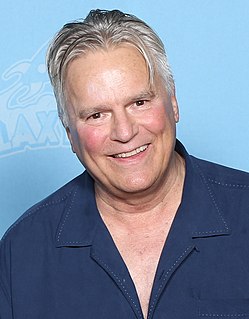A Quote by R. A. Salvatore
Whenever you're writing a book or creating a movie or a game, your first task is to get the reader to suspend disbelief, to buy into the logic and boundaries of your world, even though those boundaries might include things like dragons and magic.
Related Quotes
Whenever you're writing a book or creating a movie or a game, your first task is to get the reader/audience/player to suspend disbelief, to buy into the logic and boundaries of your world, even though those boundaries might include things like dragons and magic. To do that, you need long threads - of history and culture.
When you do your collection, you are much more free. You have fewer boundaries. When you work on a movie, you have to take into consideration the story, the plot, the vision of the director, even the physique of your cast. And then on top of all this, you want your imagination, your taste, and your ideas to come through. But a movie is forever.
Gods, religions and national boundaries are absolutely imaginary. They don't tend to exist. As soon as you pull back half a mile and look down at the Earth there are no national boundaries. There aren't even national boundaries when you get down and walk around. They're just imaginary lines we draw on maps. I just get fascinated by people who assume that things that are imaginary have no relevance to their lives.
In any kind of comic scene you're going to perhaps push the boundaries of plausibility but as long as there is some semblance of logic I think as an audience you'll buy it and as an actor, when it comes to playing things like that, it gives you something to delve into. When I don't buy into a comic scene is the type of scenario where you'd just go: "Well, that would never happen."
Publishing a book is a great thing, and I'm grateful, but it's also a horrible, exposing thing. Once you've published a book, you never write quite as freely again. You're aware, from that point onward, of the kinds of things critics might say about it. You're aware of the kinds of things your publishers might like and dislike about it. You're half-aware of marketing strategies - of all the stuff around the book. Whereas with your very first piece of fiction, if you're lucky, those things barely occur to you at all.

































